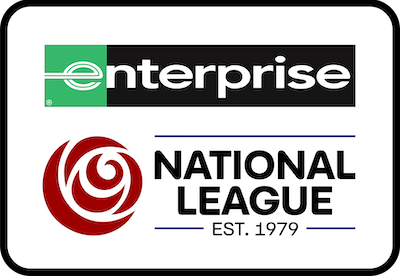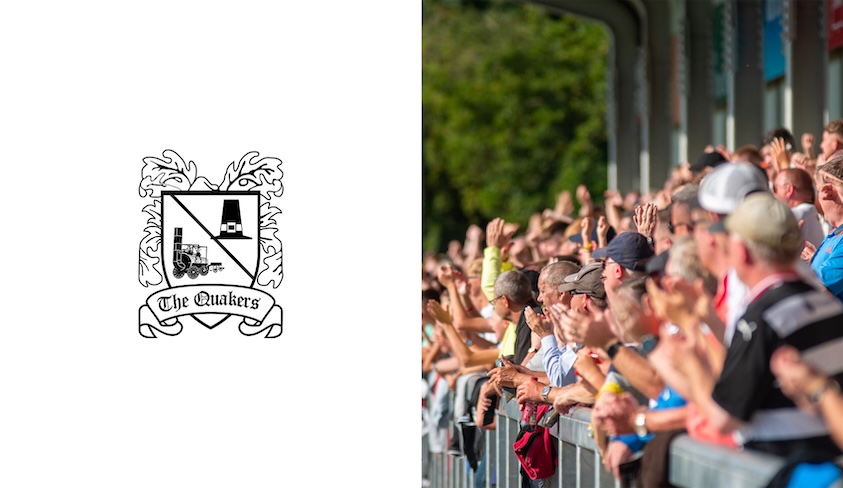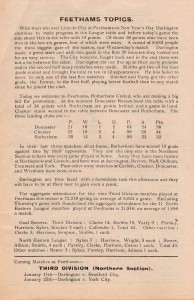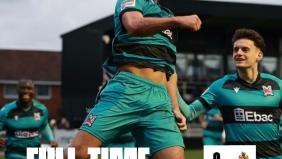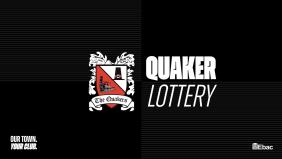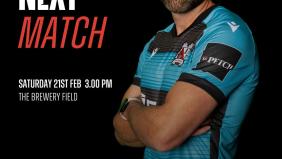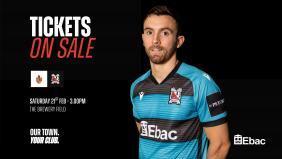In the latest of his excellent Memory match series, Simon Weatherill takes us back to the 4-3 home w...
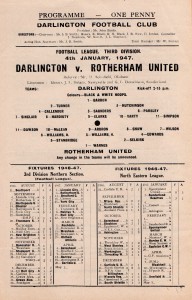
In the latest of his excellent Memory match series, Simon Weatherill takes us back to the 4-3 home win over Rotherham on January 4th 1947.
League football returned to this country in August 1946 after a break of seven years due to the Second World War. The make up of all four divisions remained unchanged from seven years previous, and the League even duplicated the fixture list from the 1939/40 season, when only three rounds of matches had been completed. There had been a transitional season of regionalised football the previous year, with Darlington competing in the North East section, but now the league was back to its old format.
The Quakers kicked off the first post war season on August 31st with a 4-2 win over Southport in front of a crowd of 8913, a record for a Division 3N game at Feethams. This record was beaten on November 2nd when league leaders Doncaster Rovers visited and drew a crowd of 9989. Attendances were holding up well, but results were less than satisfactory. Towards the end of November manager Jack English left the club (by mutual agreement) and was replaced by Bill Forrest. Results improved immediately, with four wins and a draw in his first six games in charge, so that by the time Rotherham visited Feethams on January 4th, the Quakers had lifted themselves to 14th place in the table with 19 points from 22 games.
Their opponents, Rotherham were pushing for promotion and sat in third place with 32 points from 20 games. They were unbeaten in fourteen games, and had scored a total of 15 goals in their last three games. The stage was set for an exciting battle between two in-form sides.
Manager English had to make one change to his side from the eleven that had beaten Lincoln 4-3 on New Years Day. Captain Wilf Parsley had picked up an injury and would be replaced at left half by Robert Dodds. The team would include Bob Simpson on the left wing, one of only two players to represent Darlington either side of the war. Simpson had signed for the club in 1936 and played 65 times in three seasons before the war. He went on to make another 31 appearances in the 46/47 season. The other player was Tom Kelly who joined the club in 1937. He only made 9 appearances pre-war but became a regular after the war and played another 148 times over the next five seasons. He was unavailable for the Rotherham game through injury.
Many of the 8711 crowd were still queuing to get into Feethams and missed the home side’s spectacular start to the game. Two goals in the first four minutes, both of them crosses from the left by winger Bob Simpson, converted by centre forward Harry Clarke. The shell-shocked visitors struggled to get into the game and the rampant Darlington forwards created chance after chance but were kept at bay by a series of daring saves by United’s keeper George Warnes, who prevented the home side running away with the game.
Against the run of play the visitors got back into the game on 30 minutes when inside left Albert Wilson pulled a goal back, and then incredibly, on the stroke of half time, they equalised when Stewart McLean scored. The half had been nearly all Darlington but somehow Rotherham went into the break all-square. Things got even better for the visitors on 52 minutes when right winger McLean scored his second of the afternoon to put them ahead 3-2. After a spectacular start, the game seemed to be slipping away from the Quakers, but they rallied and forced home an equaliser in slightly odd circumstances. Winger Bob Sinclair crossed from the right and Charlie Stubbs and Harry Clarke both went for the ball, which ended up in the net. Neither player was sure who had got the final touch and politeness prevailed with neither man wanting to take the credit (can’t imagine that kind of thing happening today). After the match they tossed a coin to decide and Stubbs was credited with the goal. On a heavy pitch the thrills continued as both sides searched for the winning goal. It eventually came in the 85th minute when another Sinclair cross from the right was fired home by Clarke to complete his hat trick and claim the points for the Quakers.
The victory kept up Darlington’s brilliant record against Rotherham at Feethams. The Yorkshire club had visited 16 times in league games and been beaten 15 times, the other game being drawn. The hat trick took Harry Clarke onto 19 goals for the season, from 19 league and cup appearances. He only played one more game for the Quakers before being sold to Leeds Utd for £5000 in February. He became the second Quakers player to earn a big money move away from the club that season. Centre half Bob Thyne had been sold to Kilmarnock for £3250 in the previous October.
The remaining three January fixtures saw two wins and a draw and hopes were high that the team could push on up the table and have a successful season. Unfortunately the weather had other ideas. Heavy snow fell in February making 1947 one of the worst winters on record. Dozens of matches were postponed and away from football, industry was seriously affected. There were power cuts and fuel shortages and the Government actually banned midweek football, to minimise absenteeism from work. (In the days before floodlights, midweek games were played in the afternoons.) The momentum that had been built up in December and January (played 10, won 7, drawn 2) was lost as the Quakers struggled to replicate their great form. The season should have finished on April 26th but had to be extended because of all the re-arranged games and Darlington eventually played their final game, at home to Wrexham, on June 7th. Only four wins in the final 16 games meant that when the season eventually finished in mid June, the Quakers had slipped to 17th place in the table. They finished the first post war season with 36 points from their 42 games. Rotherham finished in second place, and would do so for the next two seasons as well, missing out on promotion each time as only the champions went up.
The programme for the 46/47 season was a very simple single sheet (hardly surprising considering post war shortages) costing one penny. The front showed the team line-ups and fixtures and results for first and reserve teams. The back had Feethams Topics, with what was happening around the club, and a note of forthcoming fixtures.
Team v Rotherham : 1 Jim Barron 2 Hugh Turner 3 Keith Hutchinson 4 Norman Callender 5 Jack Saunders 6 Robert Dodds 7 Bob Sinclair 8 Charlie Stubbs 9 Harry Clarke 10 Tom Varty 11 Bob Simpson.



